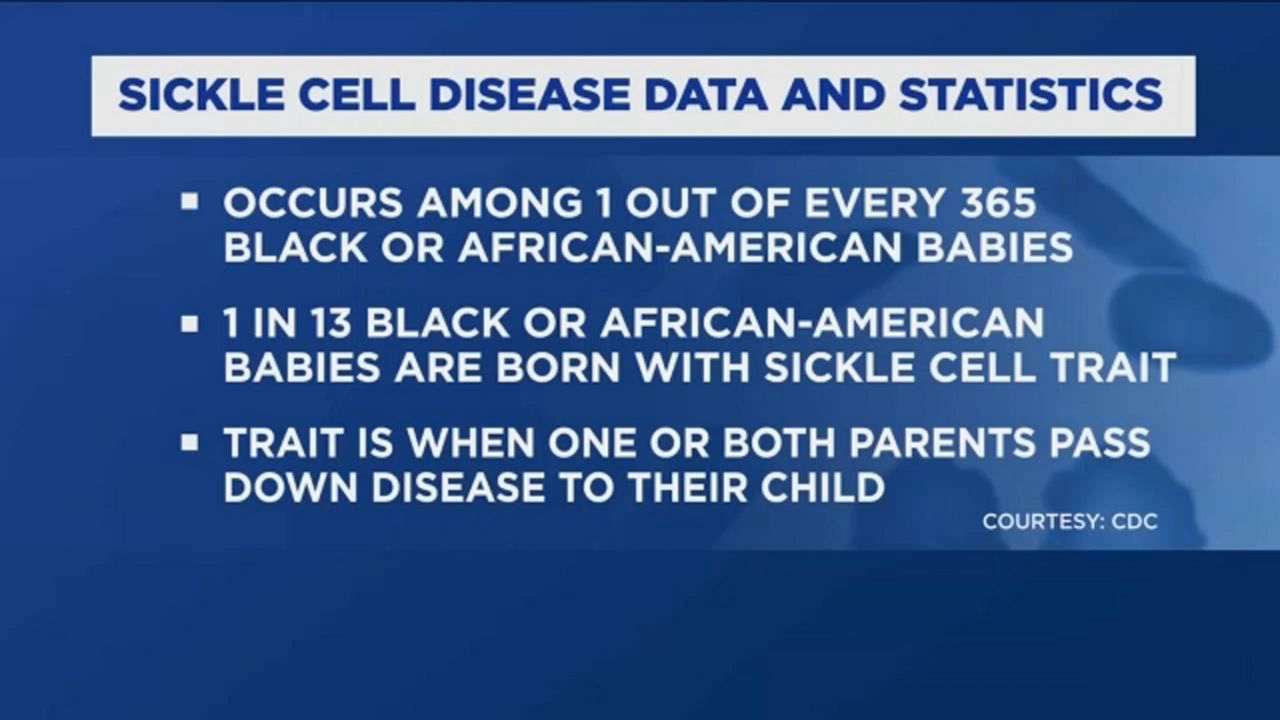According to the Centers for Disease Control and Prevention, the exact number of people living with sickle cell disease in the U.S. is unknown.
However, they estimate at least 100,000 Americans are living with sickle cell disease, the majority of them being Black and African American.
What You Need To Know
- Congressman Charlie Crist says the Sickle Cell Care Expansion Act will be a game changer for sickle cell patients and the health care providers treating them
- CDC data shows 1 out of every 365 Black or African-American babies are born with sickle cell disease.
- Sickle cell patients have red blood cells that are in the form of a “C” shape, blocking blood flow and oxygen from getting to the body’s tissues and organs
- More Justice For All headlines
Research shows Sickle Cell was first discovered in the early 1900's but information about the disease is still a mystery to most people. Congressman Charlie Crist is hoping to change that with a new bill, The Sickle Cell Care Expansion Act, that he says will be a game changer for sickle cell patients and the health care providers treating them.
“Black Americans make up more than 80% of the population with sickle cell disease, and when combined with the poorer health outcomes already facing Black Americans, the lack of access to care compounds the injury,” Crist said. “It’s time to right this wrong by boosting the number of medical professionals who specialize in treating sickle cell disease and raising awareness about the resources available for those with sickle cell–improving care for patients. Let's save lives and end the needless suffering.”
The legislation would expand the National Health Services Corps (NHSC) to include the study of benign hematology, the specialty under which SCD falls. NHSC provides scholarships and loan repayment assistance as an incentive to attract health care providers to specialties where shortages exist.
CDC data shows 1 out of every 365 Black or African-American babies are born with sickle cell disease. One in 13 Black or African-American babies is born with a sickle cell trait. The trait is what one or both parents have to pass down the disease to their children.
Gregory Thomas said both of his parents had the trait and passed down the disease to him. He was first diagnosed when he was a toddler and has been battling the very painful disease ever since.
“Sickle cell also effects some of us differently than others because everyone with sickle cell might not deal with it the same way,” Thomas said.

According to the CDC bone marrow and stem cell transplants are a cure only for extreme cases of sickle cell in children and one of the side effects is death. So for people like Thomas, he just has to live with it.
“There’s no cure exactly. I even asked about a cure a while back. And just to know there isn’t one, it was so discouraging for me,” he said.
Sickle cell patients have red blood cells that are in the form of a “C” shape, blocking blood flow and oxygen from getting to the body’s tissues and organs. That blood traffic jam is what Thomas said causes him excruciating pain.
“I had PE pulmonary embolism and deep vein thrombosis. So I had a blood clot in my thigh and one in my chest and I remember the physicians told me that if one hit my chest that would be either a stroke or something major and I knew it was death,” he said. “Even when I’m admitted into the emergency room, they’ll mention to me on a scale of 1-10 what is your pain and I would say a 20 plus.”
He said it’s equally painful to go through the process of actually getting treatment.
”Most times they treat sickle cell patients as if we’re drug addicts, like we’re just in the hospital drug seeking. And that is not the case because a lot of times when we are in pain, we’re truly in pain. We can’t walk, sometimes we can’t speak. And also sickle cell could lead to other complications such as strokes and even blood clots. I’ve had those before too,” he said.
News of the new congressional bill that will educate healthcare providers, fund research and improve access to care gives him hope.
“That would assist someone like me a lot. Especially if they already understand. Especially if they say you know what, we know what you’re here for and just admit me and just treat me and I don’t have to go through the chaos and the process and the assumptions that they make,” Thomas said.
He says he’s hoping the bill passes, so the next time he packs up and heads to the hospital he’ll feel the effects of that legislation.
Congressman Crist said he’s confident the bill will pass. It’s expected to take about a year to find out if it does.



